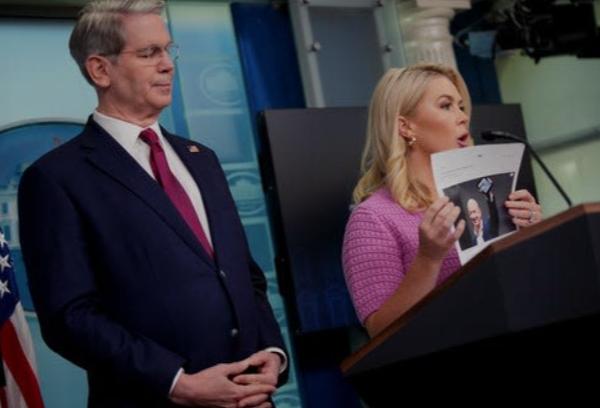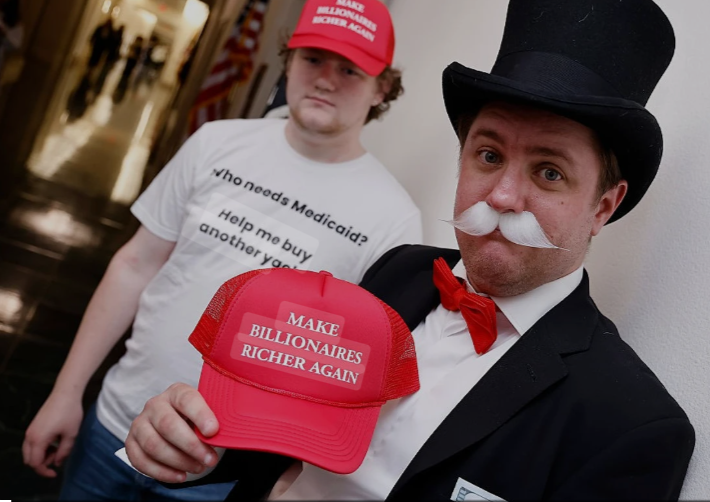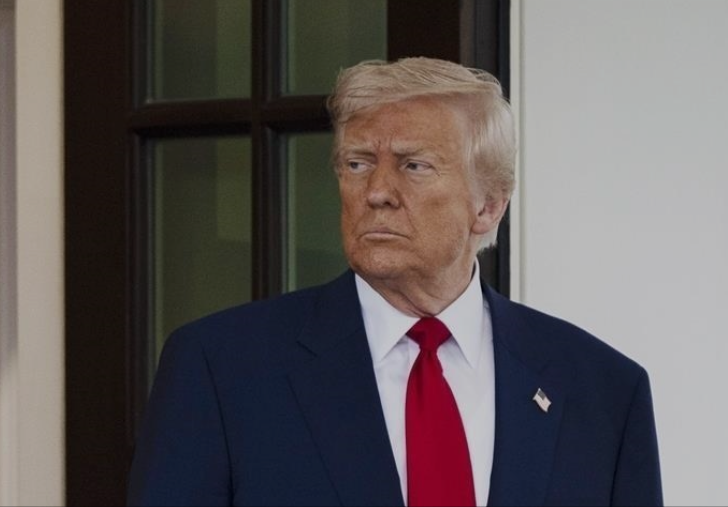In an extraordinary escalation of tensions between the federal government and a leading American corporation, the Trump White House has accused Amazon of taking a “hostile and political” stance after reports surfaced that the company was considering informing customers about the real-time costs of tariffs imposed by the administration.
According to a report from Punchbowl News, Amazon had internally discussed a plan to display tariff-related price increases directly on product listings, offering transparency to shoppers about how much Trump’s sweeping new tariffs are adding to the cost of goods—especially those imported from China. The move, while ultimately not implemented, was described as a potential feature in Amazon’s new ultra-low-cost shopping division, “Amazon Haul.”
White House Press Secretary Karoline Leavitt blasted the idea in a briefing, calling it a politically motivated attempt to undermine the administration’s trade agenda. “Why didn’t Amazon do this when the Biden administration hiked inflation to the highest level in 40 years?” Leavitt asked rhetorically, attempting to shift focus to the previous administration while dismissing Amazon’s rationale for consumer transparency.
Leavitt added, “This is another reason why Americans should buy American,” despite Amazon being one of the most prominent U.S.-based companies, headquartered in Seattle and employing over a million Americans.
While Amazon did not issue an immediate public statement, the company later clarified its position. “The team that runs our ultra-low-cost Amazon Haul store considered the idea of listing import charges on certain products. This was never approved and is not going to happen,” said Tim Doyle, a spokesperson for Amazon.
The White House’s aggressive response appears to reflect the broader political and economic implications of President Trump’s new wave of tariffs. Earlier this month, Trump reintroduced heavy trade penalties, particularly targeting Chinese imports, which have disrupted pricing models across the e-commerce industry. Retailers like Temu and Shein, which import goods directly from China, have already begun listing import surcharges—reportedly as high as 145%—on customer receipts.
Amazon, for its part, has reportedly asked third-party sellers to absorb these new tariff costs rather than pass them along to consumers. Nevertheless, prices on the platform have been rising, leading to growing concern among both shoppers and sellers.
Asked whether this dispute signals renewed tension between Donald Trump and Amazon’s founder Jeff Bezos, Leavitt declined to comment directly. “I will not speak to the president’s relationships with Jeff Bezos,” she said. The history between the two high-profile figures is well-documented—and turbulent.
During Trump’s first term, Bezos, then CEO of Amazon and owner of The Washington Post, was openly critical of Trump’s authoritarian-leaning rhetoric. Trump, in turn, accused Amazon of tax evasion and used his office to pressure the U.S. Postal Service to hike delivery rates for the company. Their rivalry intensified as The Washington Post published investigative reporting scrutinizing the Trump administration.
However, the dynamic appears to have shifted with Trump’s return to power. Bezos, who stepped down as Amazon CEO in 2021, donated $1 million to Trump’s 2025 inaugural fund and attended the inauguration alongside several Silicon Valley executives. The Washington Post, under Bezos’s ownership, notably declined to endorse a candidate in the 2024 election—breaking with over 30 years of tradition.
In February, Bezos announced a strategic pivot for the Post’s opinion section, stating that it would now focus on “defending personal liberties and free markets.” The move prompted an internal backlash, the resignation of the opinions editor, and criticism from Marty Baron, the Post’s former executive editor, who called it a “betrayal of the very idea of free expression.”
Meanwhile, Amazon is reportedly spending $40 million to license a documentary about First Lady Melania Trump—a signal to some observers that the company may be making overtures to the Trump administration after years of conflict.
Still, the administration’s blistering attack on Amazon over a mere consideration of pricing transparency raises serious questions about how far the White House is willing to go to suppress dissent—or even basic information—that conflicts with its messaging.
For democracy advocates and consumer rights groups, the administration’s hostility toward transparency is deeply concerning. “Instead of encouraging corporate honesty and empowering consumers with information, this administration seems determined to silence any narrative that contradicts its talking points,” one civil liberties expert told us.
As the economic fallout from Trump’s trade war continues to ripple through the American marketplace, the battle over who controls the narrative—and who pays the price—has clearly only just begun.



